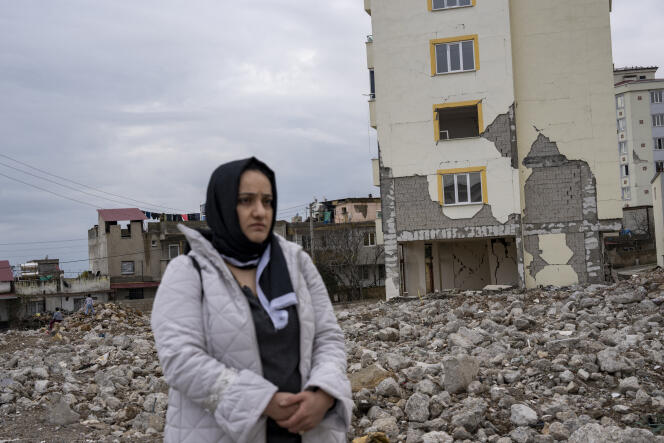


The smell of death may no longer be in the air, but loss still haunts these ruined fields a year to the day since an earthquake crushed everything in its path. Kahramanmaras, a hard-working, conservative city deep in the south of Turkey, was hit hard by the gigantic quake of February 6, 2023. There were officially 53,537 people killed – almost a third of them here.
On Vezir-Hoca Boulevard, which runs into the city center, two out of three buildings were destroyed by the earthquake and its aftershocks. Those remaining, now uninhabitable, have been evacuated and emptied, with promises they will be demolished in the future. Only a few of the district's buildings are still standing.
Phone in hand, bag slung over her shoulder, Tuba Erdenoglu turned over stones and concrete chips with the slow, precise movements of someone who has had to learn to survive. "I need to accumulate evidence," she explained in a voice without emotion. Beneath her feet lay the remains of the Said-Bey building, the name given at the time of its construction in 2016 to these two joined buildings, considered rather modern and chic at the time. Block A and Block B, eight storeys each, nine if you count the mezzanine. Everything was crushed and cleared in the months following the disaster to find bodies: 44 to date; 45 if you include a child still missing. There were just 25 survivors.
Erdenoglu herself dug and searched for her family members for three days and nights, with her bare hands. The building took her sister, mother, father and grandfather. Only her 75-year-old grandmother survived. The sofa in the living room on which she had lain that night toppled over, acting as a shield over her. She now lives alone in one of the 50 container housing estates in the area.
"Buildings collapsed everywhere, but none like this one," she said. "The Said-Bey building was sold as the safest and most earthquake-compliant, but it collapsed in on itself in eight seconds. Just like that, both blocks, in the space of a breath. No other building in the neighborhood flattened like that."
With other survivors she brought a case to court, a collective action by 25 people of all ages and situations, a veritable microcosm of a battered country. They included an army officer, a Quran teacher, a shopkeeper in her fifties and a beautician, all irreparably scarred. Their complaint was accepted by the prosecutor's office of the city's criminal court, triggering one of the region's first large-scale lawsuits against developers of damaged buildings. The preliminary hearing, in early December 2023, lasted almost 13 hours. The second, on January 19, was slightly shorter.
You have 70% of this article left to read. The rest is for subscribers only.
